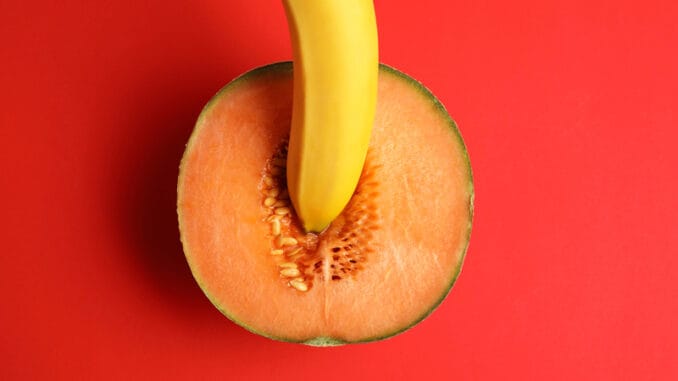
Reach the deepest parts of her lady bits that are begging to be fulfilled…

—-Important Message From Lloyd Lester—-
This helps you fulfill her deep penetration desires
Look, no woman will ever openly admit you feel “too small” for her…
But when you fill her deep penetration desires…she’ll unknowingly bite her lips, thrust her head back, and shake in unspeakable pleasure.

So how do you do it?
How do you fill her deep penetration desires with whatever you’re packing right now?
———-
Proof that sugar isn’t causing diabetes
About a hundred years ago, the discovery of insulin led to a revolution in the treatment of diabetes.
Insulin is naturally produced in the pancreas and it plays a role in regulating blood sugar.
Over the last 100 years, the diabetes world has crystallized around the idea that sugar causes diabetes and insulin is the only treatment.
I have written before about how this is not true for a number of reasons.
Potassium also helps to control blood sugar.
And elevated levels of free fatty acids in the blood are a major cause of blood sugar.
But just recently there has been a major discovery in this field…
Scientists uncovered a protein/hormone which is produced in fat tissue and has a number of effects which profoundly affect blood sugar.

The research was carried out at the Salk Institute for Biological Studies in California. The paper was published in Cell Metabolism.
Most people associate diabetes with high blood sugar.
But diabetes is also a state of:
- Insulin resistance
- The excessive breakdown of fats which flood the blood (lipolysis)
- Excessive production of sugar in the liver
“Inexorable increases in insulin resistance, lipolysis, and hepatic glucose production are hallmarks of type 2 diabetes.”
Recent research has uncovered a protein/hormone called fibroblast growth factor 1 (FGF1).
FGF1 can have profound effects on some of these diabetes symptoms.
“Previously, we showed that peripheral delivery of exogenous fibroblast growth factor 1 (FGF1) has robust anti-diabetic effects.”
FGF1 is a protein produced in the body.
This new research was designed to try to figure out how exactly it works.
“However, its mechanism of action is not known.”
Through a series of experiments, the researchers found that FGF1 prevents the breakdown of fats – something known as lipolysis.
In diabetes, excessive lipolysis breaks down storage fats which then flood the blood with these lipids.
These fats compete with sugar to be absorbed by the cells.
More fat in the blood means that there is nowhere for sugar to go.
Blood sugar rises.
FGF1 also lowered the production of excessive sugar in the liver – another often overlooked factor in high blood sugar.
“Here, we report that FGF1 acutely lowers hepatic glucose production by suppressing adipose lipolysis.”
It is early days in this research and it is not yet clear how to leverage FGF1 in diabetes.
But it is an exciting new discovery as it shows that insulin is not the only way to deal with high blood sugar.
“These findings establish the FGF1/PDE4 pathway as an alternate regulator of the adipose-hepatic glucose production axis and identify FGF1 as an unrecognized regulator of fatty acid homeostasis.”
The research also points toward the growing acknowledgement among the research community about the importance of fats in diabetes.
These fats, broken down by excessive lipolysis, play a much greater role in diabetes than sugar does.
The belief that sugar is the cause of type II diabetes has played a major role in the increases in this disease in recent decades.
Because people are doing exactly the wrong things due to having an incorrect understanding of the disease.
And it is not just FGF one that can help control excessive lipolysis and fat production.
I have written whole newsletters about how to deal with diabetes by decreasing lipolysis.
The judicious use of things like aspirin and the niacinamide form of vitamin B3, alongside some other less well-known supplements…
…can have profound effects on reducing lipolysis.
This can help to restore blood sugar control in much the same way that FGF-1 does.
—-Important Message About Blood Sugar—-
Should diabetic and prediabetic men eat fruit?

The FDA recommends diabetic men eat fruit.
But is it true?
Sure, fruit is healthy… but it contains a LOT of sugar.
Fructose specifically — and fructose is supposed to be implicated in diabetes, right?
However, fructose is unusual — it does not increase insulin!
So should prediabetic and diabetic men eat fruit?
Here’s the answer about fruit, and other foods the FDA recommends diabetic men eat…
———-

